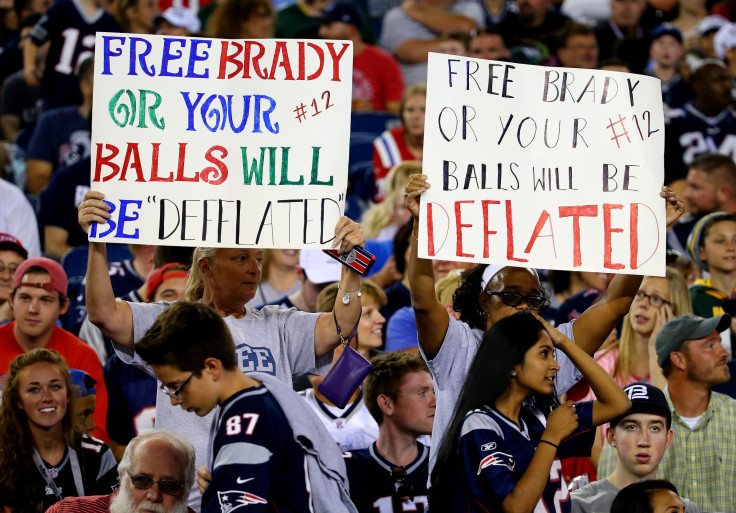Is Tom Brady Guilty? Everybody Thinks So, Except New Englanders

On Thursday night, when Tom Brady made a surprise start for the New England Patriots in their first preseason game of the year, a majority of Americans probably thought, "I can’t believe that guy is even allowed to play."
Except, that is, those in New England, where a majority of residents believe the four-time Super Bowl champion is innocent of charges that he played a role in the Deflategate scandal from last season's AFC championship game. The results of a survey released Thursday show that a majority of residents in every state in the country think Brady is guilty -- except Massachusetts, Rhode Island, New Hampshire and Maine -- otherwise known as the beating heart of Pats Country. Connecticut, a state that's technically part of New England but splits its sport allegiances between New York- and Boston-area teams, mostly felt that Brady was guilty.
The results of the survey offer a clear-cut example of "in-group favoritism," or "in-group bias," a psychological phenomenon where humans feel compelled to favor or privilege people who are part of their group over those who aren’t. “It’s quite understandable,” said Daniel Funk, a professor of consumer behavior at Temple University. “They identify with that team, not only from the sport aspect but from the geographic aspect.”
Deep Rooting Interest
Because of Deflategate, in which Brady was suspected of being involved with the underinflation of footballs for the game that vaulted the Patriots into last season's Super Bowl, the quarterback faces a four-game suspension when the NFL's regular season begins in September. But he is allowed to play in preseason games -- and hopes for the suspension to be overturned before the real games begin.
Provincial support for Brady goes much deeper than a simple desire to see the Patriots do well this season. Over the years, psychologists have discovered that sports fans identify so strongly with the teams they support that they process news and information about them and their players differently. "We create identities in order to form our experiences around those identities," said Susan K. Whitbourne, a professor of psychology at the University of Massachusetts, Amherst.
And once those identities are formed, they play a role in how we digest information. “When I read something critical, or I respond to criticism, there are some cognitive processes at work,” Funk said. “Because this information conflicts with my held attitudes, I'm going to look to counter or refute it.”
Knowledge Gap
Because Brady’s future is of particular interest to New England residents, they have also been following the Deflategate story a lot more closely than the rest of the general population.
According to Google Trends, the volume of searches for “deflategate” has been far higher in the Northeast than anywhere else in the country, as the rest of the country mostly reacts to the news with a shrug. “In the grand scheme of things, it's what you'd call a storm in a teacup,” Funk said. “But if you live in the teacup, it’s quite volatile.”
Because most American sports fans don’t view Brady as part of any of their in-groups, they take in news about him and his Deflategate role differently than New England sports fans do. “They're more passive in the way they respond to the information,” Funk said. “NFL football's popular, but for the majority of people, whatever information they get, they have no [in-group bias] to evaluate it with.”
Media Bias
One other reason for the disparity could be a difference in the scope and slant of media coverage. While national outlets have spilled their share of ink covering Deflategate’s details, their coverage doesn’t come close to the level of attention it continues to get in New England, where what Brady knew or didn’t know is an almost daily topic of conversation.
“They have been going nuts about this thing,” Whitbourne said, adding that local radio shows discuss the topic tirelessly. “They keep presenting data to refute the possibility of any impropriety.”
Ultimately, the in-group bias in Brady's case is so pronounced because there is an incomplete set of information available. “There's never going to be firm knowledge about this,” Whitbourne said. “When it's ambiguous, you have all sorts of room to fill the gap of knowledge.”
© Copyright IBTimes 2024. All rights reserved.





















